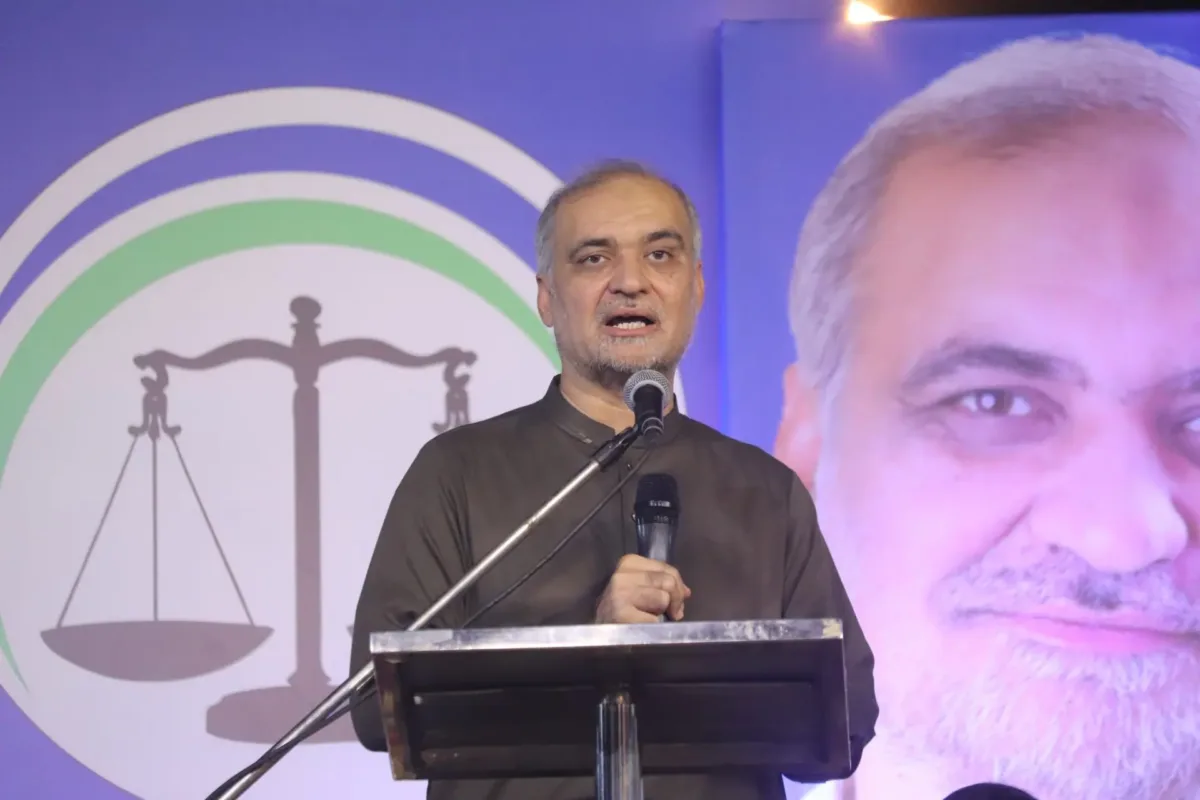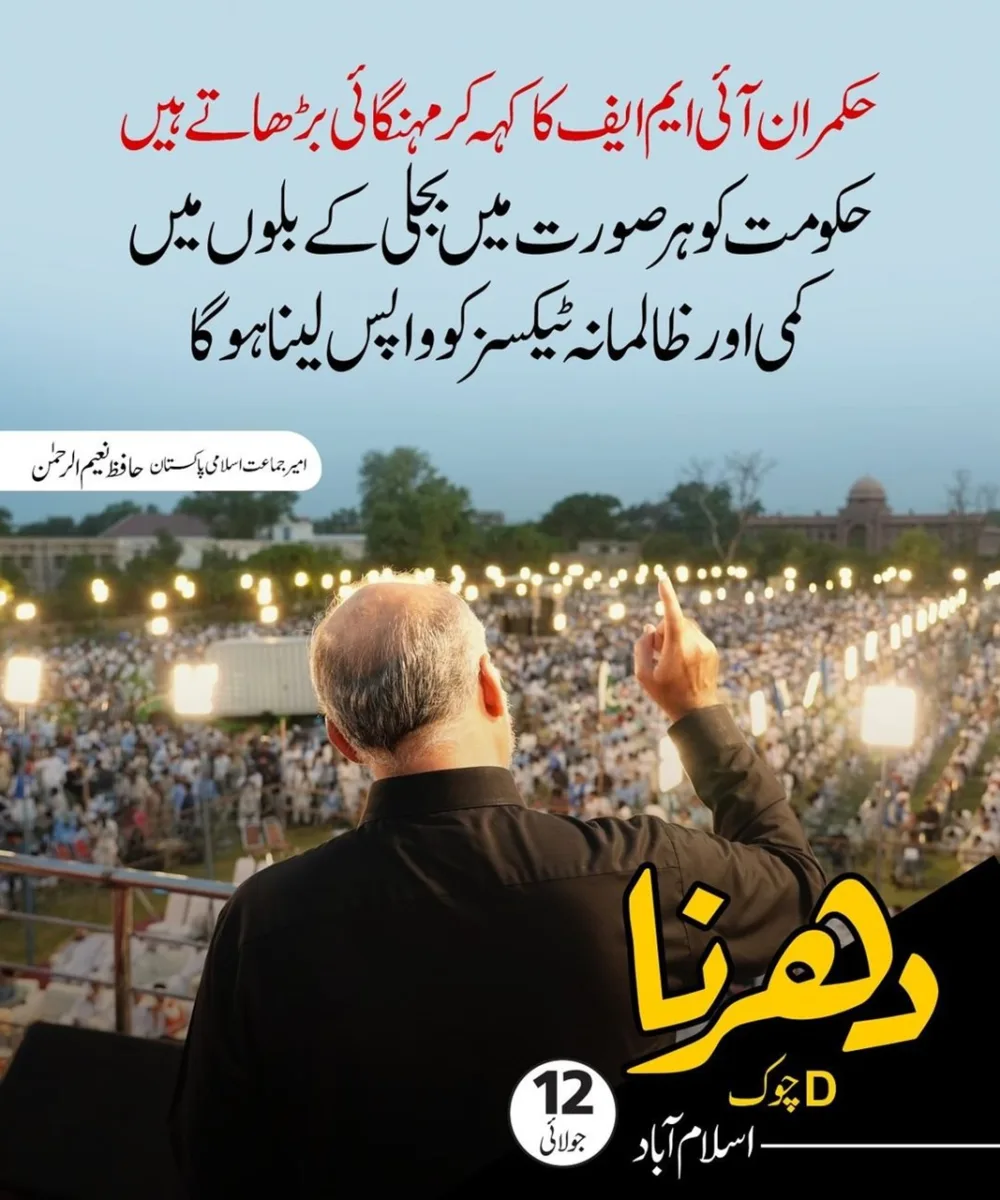Jamaat-i-Islami (JI) has announced a significant protest scheduled for July 12 in Islamabad, aimed at addressing what they perceive as excessive taxes and exorbitant electricity tariffs imposed by the government. Hafiz Naeemur Rehman, the party’s emir, made the announcement on social media platform X, declaring that he would personally lead the rally under the banner of the Haq Do Awam Ko (give rights to the masses) movement.

The decision comes in response to the recent passage of the Finance Bill 2024, heavily laden with taxes, which received presidential assent from Asif Ali Zardari on Sunday. The budget, introduced two weeks ago, has drawn sharp criticism from opposition parties, particularly the PTI, and even coalition partner PPP.
Speaking at a press conference in Karachi, Rehman highlighted the economic hardships faced by ordinary citizens, accusing the government of prioritizing its own privileges over the welfare of the people. He condemned the budget as “cruel,” asserting that it fails to meet the needs of the populace while burdening them with additional taxes. According to Rehman, the brunt of these taxes falls disproportionately on the salaried class, while the elite and landowners enjoy exemptions.

“We believe these issues demand genuine attention,” Rehman stated, emphasizing that the decision to stage a large-scale rally in Islamabad on July 12 was reached after extensive consultations with party leaders nationwide.
The primary objectives of the protest, as outlined by Rehman, include a reduction in electricity tariffs and taxes, alongside a revision of the current tax structure that he deems unfair. He criticized the slab-based pricing system for electricity bills and vowed that the protest would compel the government to retract what he termed as “cruel measures.”
Rehman underscored the detrimental impact of economic policies, citing a significant exodus of professionals, including doctors, engineers, IT specialists, and chartered accountants, leaving Pakistan due to economic instability exacerbated by inflation and unemployment.
“We cannot afford to let our skilled professionals leave the country,” Rehman lamented, urging solidarity from all sectors of society, including traders, industrialists, and the salaried class, to join the movement for economic justice.
In addressing recent power outages during a heatwave, Rehman criticized power distribution companies, holding them accountable for inadequate service provision.
Looking ahead to the July 12 protest, Rehman hinted at the possibility of it evolving into a sit-in demonstration, emphasizing the party’s commitment to sustained advocacy until their demands are met.
“We have no choice but to stand with the people,” Rehman asserted, signaling the party’s determination to mobilize nationwide support for their cause.
As preparations intensify for the upcoming rally, JI continues to strategize on potential future actions, including the prospect of a national strike, further underscoring their resolve to challenge what they perceive as unjust economic policies.
Rehman also dismissed calls for re-elections by other political entities, reaffirming his stance on the validity of existing electoral forms.
The July 12 protest in Islamabad is poised to be a pivotal moment in JI’s ongoing campaign for economic reform, marking a concerted effort to galvanize public sentiment against perceived governmental injustices.









